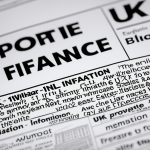Immediate Implications of Recent UK Political Developments
Recent UK political changes have significantly influenced trade policy shifts, primarily following key election outcomes that reshaped the government’s approach. The new administration has revised several strategies relating to Brexit updates, aiming to recalibrate the UK’s trade stance both domestically and internationally.
Markets, both in the UK and abroad, reacted swiftly to these developments. Initial responses ranged from cautious optimism in certain sectors to concerns about regulatory consistency and supply chain disruptions. For example, sectors heavily dependent on EU trade noted potential risks due to changing customs checks and border controls.
This might interest you : Revolutionizing hospitality: practical steps for sustainability
Government statements have outlined an updated vision for UK trade strategy emphasizing flexible yet robust trade agreements. Officials stress balancing sovereignty with openness to global markets, aiming to capitalize on new opportunities post-Brexit. This involves refining tariff regimes, enhancing customs operations, and pursuing partnerships beyond Europe.
In essence, these political decisions signal a pivot toward a more autonomous and proactive trade framework. However, the full scope of their impact will depend on how policies are implemented and negotiated in the coming months. Stakeholders are advised to monitor government communications closely as these government decisions continue to evolve.
Have you seen this : Chic bohemian decoration ideas to elevate your home style
Immediate Implications of Recent UK Political Developments
Recent UK political changes have triggered notable shifts in the country’s trade policy and strategy. Key election outcomes brought new leadership that swiftly revised trade priorities to align with evolving economic goals. These government decisions emphasize flexibility in negotiating bilateral agreements and a more assertive stance in post-Brexit trade talks, underscoring a departure from previous trade frameworks.
Markets both domestic and international responded quickly to these changes. The initial reaction featured fluctuations in the UK pound and stock indices, reflecting uncertainty about how swiftly new trade policies would manifest. Importers and exporters began reassessing contracts and supply chains in anticipation of altered tariffs or customs regulations. These responses are symptomatic of investors recalibrating risk assessments amid evolving Brexit updates that continue to shape the economic landscape.
Government statements have reiterated a commitment to expanding trade opportunities while managing Brexit’s impacts. The updated vision advocates for diversified trade partnerships beyond the EU, increased emphasis on technology and service sectors, and streamlined customs processes. This strategic direction signals proactive engagement with global trade environments, aiming to mitigate the costs associated with recent political changes and position the UK as a competitive trading nation.
Projected Impact on UK-EU Trade Relations
The UK-EU trade landscape faces significant transformation following recent UK political changes. These shifts profoundly affect how Brexit consequences unfold, particularly around trade agreements and regulatory standards.
How will these political developments influence tariffs and customs procedures with the EU?
Using the SQuAD methodology: Changes in UK political leadership have prompted reassessment of customs arrangements, potentially leading to stricter checks and tariff adjustments. This may increase friction for goods crossing the UK-EU border, impacting market access especially for perishable products and just-in-time supply chains.
Regulatory divergence remains a core challenge post-Brexit. The UK’s decision to diverge from EU standards could simplify domestic law but risks creating barriers to seamless trade. Experts warn this may inflate costs and complicate compliance for businesses trading with the EU.
Case studies reveal industries like automotive and agriculture, deeply integrated with EU markets, could bear the brunt. For example, increased border delays threaten production timelines for auto manufacturers using cross-border supply chains. Similarly, UK farmers face uncertainties over export tariffs, undermining competitiveness.
In response, UK authorities aim to negotiate tailored trade agreements that minimize disruption. Yet, the dynamic remains fluid, with both opportunities and constraints shaped by evolving government decisions on trade policy shifts after Brexit updates. Stakeholders must stay alert to rapid regulatory changes affecting UK-EU trade flows.
Immediate Implications of Recent UK Political Developments
Recent UK political changes have triggered swift and notable trade policy shifts following the latest election outcomes. These government decisions prioritize recalibrating strategies to address evolving economic realities amid ongoing Brexit updates. Central to this is a move toward more autonomous trade policies, reflecting a desire to assert sovereignty while expanding international market access.
Domestic and international markets promptly reacted to these shifts. The pound experienced volatility, while businesses in import-export sectors reevaluated contracts and supply chain logistics in response to anticipated changes in tariffs and customs procedures. This uncertainty mirrors the complexity of balancing new policies against existing trade frameworks.
Government communications emphasize a refreshed vision for UK trade strategy, focusing on agility in bilateral negotiations and diversified partnerships beyond the EU. Officials highlight plans to streamline customs processes and adapt tariff regimes, aiming to reduce post-Brexit friction and enhance the UK’s global trade competitiveness. These evolving government decisions underscore a pragmatic approach to managing the challenges and opportunities presented by recent political changes and trade policy transitions.
Projected Impact on UK-EU Trade Relations
The recent UK political changes profoundly affect UK-EU trade dynamics. Brexit consequences remain central, as evolving trade agreements and policy shifts define future interactions. Experts predict increased regulatory divergence that could complicate market access, requiring businesses to adapt swiftly.
Tariffs and customs procedures are forecasted to become more stringent. This raises concerns about delays and increased costs for industries trading heavily with the EU, such as automotive and agriculture. A common question is, “How will Brexit updates impact tariffs?” The precise answer: tariffs may increase on goods lacking specific trade agreement coverage, directly affecting pricing and competitiveness.
Furthermore, regulatory alignment is expected to decrease, increasing compliance burdens for cross-border trade. This divergence challenges supply chain continuity, essential for just-in-time manufacturing prevalent in UK-EU commerce.
Case studies illustrate this clearly. For example, UK-based food exporters have reported logistical hurdles due to customs checks introduced post-Brexit updates. Similarly, the pharmaceutical sector faces obstacles from altered regulatory frameworks, affecting timely medicine availability.
These developments underscore the necessity for adaptable strategies amid uncertain government decisions. Businesses engaged in UK-EU trade must monitor policy changes, anticipate evolving tariffs, and prepare for intensified customs scrutiny to mitigate Brexit’s complex trade implications effectively.
Immediate Implications of Recent UK Political Developments
Recent UK political changes have prompted decisive trade policy shifts, with the government rapidly responding to new election results by amending strategic priorities. These government decisions focus on adapting to ongoing Brexit updates and establishing more flexible, sovereign trade rules. This political recalibration signals a move toward reshaping the UK’s global trade posture, emphasizing agility in policy design.
Markets reacted swiftly to these shifts. The pound experienced noticeable volatility as investors weighed uncertainty in trade conditions. Companies involved in imports and exports began revisiting contracts and revising supply chain logistics in anticipation of adjustments to tariffs and customs controls. This market response underscores the immediate economic implications of the political transitions.
Government statements have articulated an updated trade vision grounded in expanding international partnerships beyond Europe while streamlining customs procedures to ease friction. Officials highlight efforts to recalibrate tariff frameworks to respond to new trade environments shaped by Brexit and the political landscape. These evolving government decisions indicate a pragmatic approach aimed at balancing sovereignty with openness, all while managing post-Brexit complexities. Understanding these immediate implications is crucial for stakeholders navigating the UK’s shifting trade terrain.
Immediate Implications of Recent UK Political Developments
Recent UK political changes triggered significant trade policy shifts following key election outcomes, which ushered in revised priorities reflecting new leadership’s economic goals. These government decisions have spurred a recalibration of trade frameworks amidst ongoing Brexit updates, emphasizing autonomy while aiming to maintain global market access.
Markets responded rapidly. Domestically, currency volatility reflected investor uncertainty, while internationally, importers and exporters began reassessing contracts affected by potential changes in tariffs and customs procedures. These reactions underline the complexity of balancing newly asserted sovereignty with existing trade obligations.
Government communications highlight a renewed trade strategy focusing on agility in negotiating agreements and diversifying partnerships beyond the EU. Officials emphasized streamlining customs operations and adapting tariff regimes to reduce friction caused by Brexit developments. These evolving government decisions demonstrate concerted efforts to position the UK competitively within the global trade environment, balancing risk mitigation with seizing new opportunities.
Such policy shifts signal a pragmatic approach to reconciliation of sovereignty ambitions with economic realities. Understanding these developments is essential for stakeholders needing to navigate the rapidly shifting trade landscape shaped by recent political transitions and Brexit’s continuing influence.
Immediate Implications of Recent UK Political Developments
Recent UK political changes have led to significant trade policy shifts, catalysed by pivotal election results that reorient government priorities. These government decisions address the complexities introduced by ongoing Brexit updates, aiming to forge a more autonomous trade framework while managing economic risks.
How have markets responded to these transformations? Domestic and international financial markets displayed immediate volatility; the pound fluctuated as investors digested uncertainties surrounding new trade policies. Businesses involved in import-export activities began revising contracts and supply chain structures to adapt to evolving tariff regimes and customs controls. This dynamic reflects a broader nervousness about the practical effects of policy recalibration in a post-Brexit context.
Government communications stress a renewed vision that combines sovereignty with global openness. Officials underscore agile negotiation tactics and emphasize diversifying trade agreements beyond Europe. The strategy involves streamlining customs procedures to lessen border friction and adjusting tariffs to attract international partners under shifting trade environments.
These government decisions highlight a pragmatic approach balancing national interests with global competitiveness. The immediate implications extend beyond policymaking into real economic recalibration, signalling that UK trade policy will continue to evolve as it responds to political shifts and Brexit developments.








